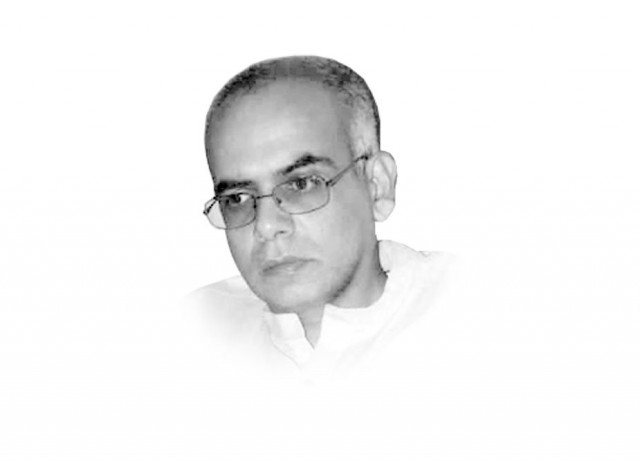Can madrassas help improve our society?
Several other positive messages can be reinforced by madrassas using Islamic precepts

The writer is a development anthropologist. He can be reached at ali@policy.hu
Existing madrassa reform efforts remain piecemeal and sporadic. The role and reform of madrassas needs innovative, acceptable and more doable strategies.
The role of madrassas in contemporary Pakistani society has become increasingly problematic. There was a time, however, when madrassas inculcated the knowhow needed not only to fulfill religious functions but to run the administrative machinery of vast Muslim empires, including that of the Indian subcontinent. It also played a significant role in the anti-colonial movement in the same region.
Post 9/11, madrassas have been increasingly scrutinised, although their role in terrorist activities has been refuted by several researchers. Madrassas do however exacerbate sectarian strife and overall myopia in our society, with the students gaining little functional literacy and other skills needed for becoming productive citizens.
Since Musharraf’s era, the attempts to reform madrassas have focused on either trying to infuse religious curricula with mainstream subjects, or to register and regulate them by conducting their audits to track sources of funding. The National Action Plan also reiterated the state’s resolve to register and regulate madrassas. Yet, madrassa reforms have not been effectively implemented, partially due to resistance by madrassas and religious leaders, who view reforms as part of a Western agenda to control them.
Some experts and policymakers argue in favour of growing section of religious leaders willing to take up opportunities to impart vocational skills or teach modern subjects in madrassas, if provided state recognition of their degrees. Plans to widen and mainstream the madrassa curricula are however a tall order, given the dismal quality of education being imparted within mainstream public schools. Moreover, even if madrassas start teaching secular subjects in earnest, this measure alone cannot address the intolerance and sectarianism being reinforced within madrassas.
The current syllabus in almost all traditional madrassas conforms to the basic structure of the Dars-e-Nizami curriculum established 500 years ago, which is in fact a narrowed version of the original curriculum, leading to increased rote learning, and a neglect of subjects in which analytical and language skills are developed.
To make our society more progressive and tolerant, the Islamic curriculum currently being taught within madrassas must be reviewed. This curriculum needs to be reformed using Islamic precepts themselves which can help deliver important social benefits. There is a rich tradition of Islamic knowledge which is acceptable to different schools of religious thought, which may be infused into the existing religious curriculum to help expand the worldview of madrassa students, to draw links between Islam and environmentalism, or to ensure protection of gender rights.
Devising relevant content based educational materials to inculcate tolerance in Pakistani madrassas and maximise their social capital alongside other reform efforts is not hard to do.
Some years ago, several religious scholars and major madrassas heads identified several issues on which lessons could easily be developed and used to achieve important social benefits. For example, encouraging madrassas to emphasise the need for women to be given their inheritance right who often forfeit it in favour of their brothers could in turn help bring about many other positive socio-economic changes.
Several other positive messages can be reinforced by madrassas using Islamic precepts to build much-needed civic sense within the country. Doing so may be easier than turning madrassas into providers of functional education, which is a goal that our public schools themselves have not been able to deliver.
Published in The Express Tribune, February 23rd, 2018.
Like Opinion & Editorial on Facebook, follow @ETOpEd on Twitter to receive all updates on all our daily pieces.














COMMENTS
Comments are moderated and generally will be posted if they are on-topic and not abusive.
For more information, please see our Comments FAQ